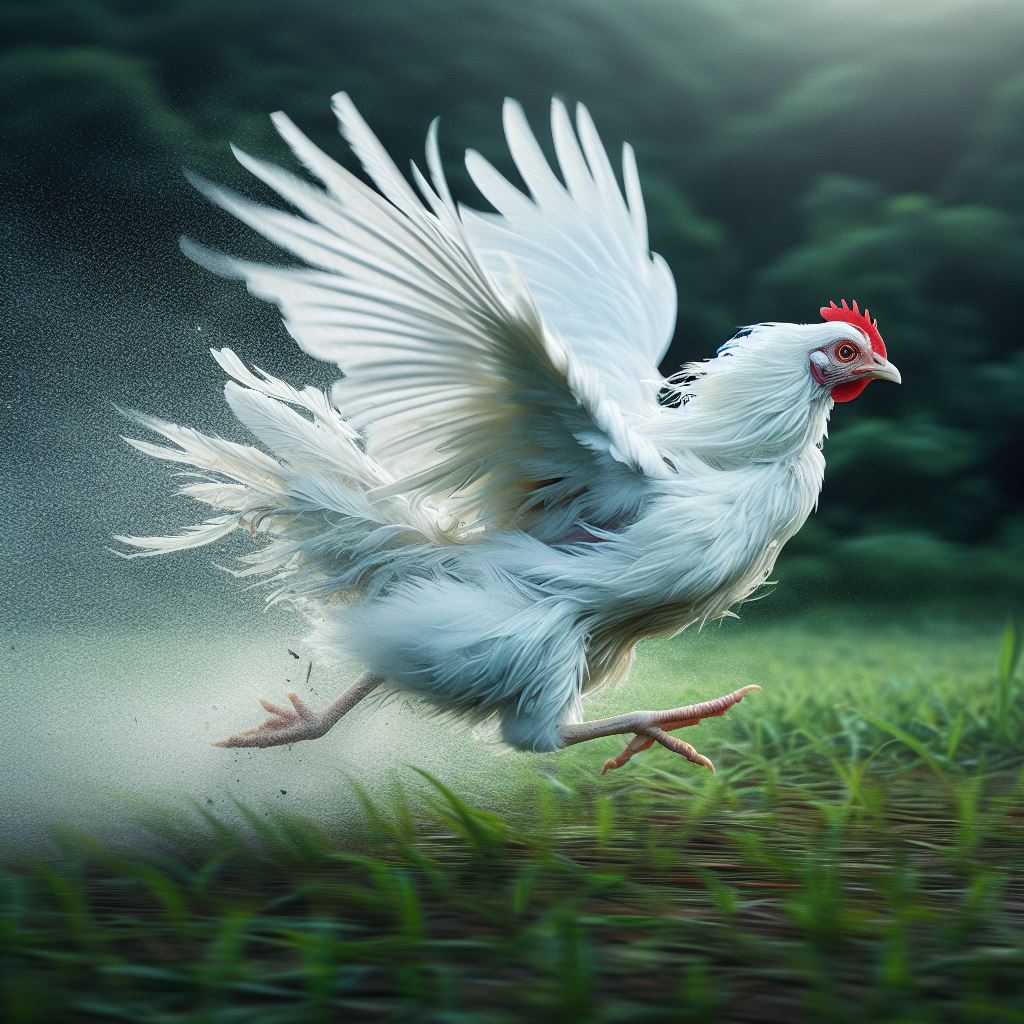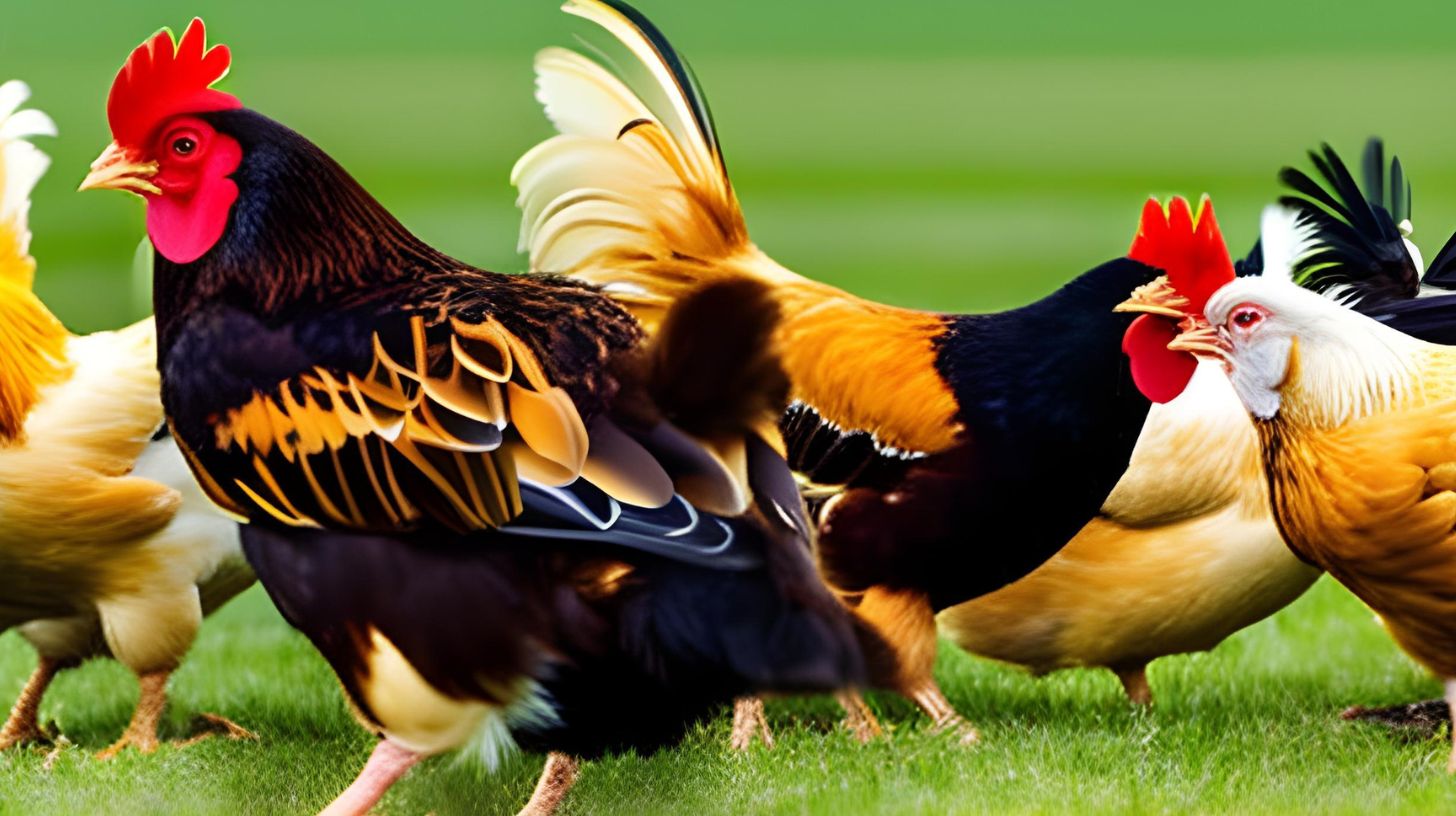Do Chickens Eat Scorpions? Farm Facts

Table of content:
- Chicken Diet and Foraging
- Scorpions as a Natural Prey Source
- Benefits of Scorpions in a Chicken’s Diet
- Potential Dangers of Scorpions to Chickens
- Do All Chicken Breeds Eat Scorpions?
- Training Chickens to Hunt Scorpions
- Safe Methods for Feeding Scorpions
- Signs Chickens Successfully Caught and Ate a Scorpion
- Final Thoughts
Chickens and scorpions inhabit overlapping environments across the world. This raises an interesting question for chicken owners and enthusiasts – Do chickens eat scorpions? Understanding chicken feeding behaviors and scorpion predation can help shed light on this query.
Chicken Diet and Foraging
As omnivores, chickens will eat both plant and animal matter. Their natural diet consists of seeds, insects, worms, berries, and small vertebrates. When allowed to roam freely, chickens spend much of their day foraging and pecking at the ground for food sources.
Insects and arachnids make up a significant portion of a chicken’s diet. Chickens opportunistically hunt and consume crickets, grubs, caterpillars, beetles, grasshoppers, spiders, and more. This provides an important source of protein for chickens in the wild.
Domesticated chickens allowed to free range exhibit these same foraging behaviors. They enjoy scratching through leaves, dirt, and compost heaps to uncover insects to snack on. Chicken owners may even purchase live insects from pet stores to supplement their chickens’ diets.
Scorpions as a Natural Prey Source
As ground-dwelling arthropods, scorpions fall squarely within the range of insects and invertebrates chickens search for while foraging. Several species occupy overlapping environments as chickens, making scorpions a naturally occurring prey item.
Scorpions prefer warm, arid habitats with areas to burrow and hide. When flipped over or exposed, they will use their pinchers and venomous stingers to defend themselves. Despite this, chickens evolved to catch and consume all sorts of dangerous prey, including scorpions. Their beaks allow them to flip over rocks and debris where scorpions hide. Speedy footwork and reflexes permit chickens to subdue scorpions before being stung.
Wild junglefowl, the ancestors of domesticated chickens, feed on spiders, crickets, centipedes, and other dangerous insects. This suggests modern chicken breeds may retain their innate ability and desire to eat scorpions.
Benefits of Scorpions in a Chicken’s Diet
Incorporating scorpions into a backyard or free-range flock’s diet can provide certain benefits:
Protein and nutrients – Scorpions contain high levels of protein, beneficial fatty acids, and important vitamins and minerals like calcium and magnesium. They serve as a nutritious supplementary food source.
Pest control – Allowing chickens to hunt scorpions helps eliminate these potentially dangerous pests around a property. Chickens may help reduce scorpion populations.
Entertainment – Chickens seem to relish chasing down and subduing fast-moving prey like scorpions. This provides exercise and enrichment.
Natural behaviors – Eating scorpions allows chickens to engage in natural foraging behaviors they have evolved to perform. It stimulates their prey drive.
Potential Dangers of Scorpions to Chickens
While scorpions provide a food source, chickens face some risks when attempting to eat them:
- Stings – Scorpion stings can be quite painful. Multiple stings could potentially be life-threatening to chickens. Stings often occur on combs, wattles, and bare skin on feet and legs.
- Allergic reactions – Chickens may experience allergic reactions to scorpion stings, which could cause swelling, itching, and other symptoms. Severe reactions might lead to anaphylactic shock.
- Toxins – Some scorpion species contain potent neurotoxins and venom that could make a chicken seriously ill if stung. Toxins may impact digestive and nervous systems.
- Eating toxicity – Certain scorpions contain chemicals toxic to chickens if ingested. Others may be venomous only when stung. Knowing scorpion species is important.
To minimize risks, provide chickens with habitats that limit scorpion exposure. Quick medical treatment following stings is advised.
Do All Chicken Breeds Eat Scorpions?
Chicken breeds may differ in their propensity to hunt and consume scorpions. Junglefowl, game breeds, and hardy foraging flocks seem most inclined, while some domesticated chickens may avoid scorpions.
Junglefowl – Red junglefowl, the wild ancestors of chickens, feed on scorpions and other dangerous prey. This natural foraging tendency continues in junglefowl breeds.
Game breeds – Breeds like Cornish, Malay, and Shamo were bred for competitive fighting. They tend to be aggressive foragers willing to eat scorpions.
Foraging breeds – Active foraging breeds such as Plymouth Rocks, Orpingtons, Brahmas, and Cochins thrive when allowed to free range. They energetically hunt scorpions and other prey.
Light breeds – Smaller light breeds like Leghorns and Anconas may avoid scorpions due to their fast strikes and stings. Their lighter body weight makes stings more hazardous as well.
Bantams – Miniature chicken breeds eat insects but may avoid confronting dangerous scorpions, especially larger species. Their small size puts them at greater risk of serious stings.
Individual variation – Regardless of breed, individual chickens show unique foraging personalities. Bold, adventurous chickens will hunt scorpions, while shy individuals may avoid them.
In general, heavy dual-purpose heritage breeds tend to be the most successful scorpion hunters when allowed to forage freely.
Training Chickens to Hunt Scorpions
Chicken owners might wonder – can you train chickens to intentionally hunt scorpions as a way to reduce pests?
While chickens can’t be trained like dogs or falcons, they can be encouraged through the following methods:
- Allow chickens to observe each other catching and eating scorpions. They can learn by example.
- Make sure chickens have adequate protein sources in their diet. Hungry chickens are more motivated hunters.
- Place tasty treats like mealworms under rocks and boards to get chickens flipping over debris where scorpions live. Reward with treats when they catch scorpions.
- Call chickens over excitedly when you uncover a scorpion yourself. Toss the scorpion on the ground and let them eat it.
- Start young chicks early by providing freshly killed scorpions in their brooder. This familiarizes them with scorpions as food.
With encouragement, many backyard chickens will eagerly hunt scorpions and other dangerous insects on a property. Just take care to minimize risks.
Safe Methods for Feeding Scorpions
For chicken owners who want to purposely feed scorpions, some methods allow safer consumption:
- Feed crushed, dried, or powdered scorpions to eliminate stinging and venom risks. This retains many nutrients.
- Quickly crush the scorpion’s tail with pliers to disable the stinger before tossing it to chickens. Avoid the striker claw.
- Paralyze live scorpions by chilling them before feeding them. This slows their defenses but retains freshness.
- Hold especially toxic varieties with tongs and allow chickens to carefully eat them fresh. Monitor for adverse reactions.
- Culture and breed your own scorpion colony for feeding. Rear less-venomous varieties optimized for consumption.
- Purchase commercially produced dried scorpions from specialty insect breeders. These are safer than wild scorpions.
With some precautions, chicken owners can safely integrate scorpions into their flock’s diet. This provides a nutritious, natural food source.
Signs Chickens Successfully Caught and Ate a Scorpion
How can you tell if a chicken has successfully hunted and consumed a scorpion? Look for these signs:
- Finding a dead scorpion with clear peck marks and missing body parts. Chickens often leave behind leftover exoskeletons.
- Seeing a chicken capture and subdue a live scorpion. They may shake or slam it against the ground to kill it.
- Observing chickens excitedly clucking and competing for a food item is a good sign they discovered a tasty scorpion to eat.
- Chickens may scratch purposefully at the base of rocks, stumps, and other debris trying to uncover hidden scorpions.
- Catching a chicken gulping down a large insect is a giveaway. Scorpions have thicker pedipalps than most insects chickens eat.
- Checking chicken droppings for indigestible scorpion parts like stingers, claws, and partial exoskeletons. These confirm scorpion consumption.
By paying attention to chickens’ foraging behaviors, owners can determine if scorpions constitute part of their diet. Collecting physical evidence offers definitive proof.
Final Thoughts
The question “Do chickens eat scorpions?” has a definitive answer – yes! As omnivorous foragers, chickens evolved to catch and consume potentially dangerous prey including scorpions. While scorpions pose some risks if stung, they offer a nutritious food source and natural enrichment for chickens.
Certain breeds are especially likely to relish hunting these armored arthropods. With proper precautions, integrating scorpions into a backyard flock’s diet can provide benefits to both the chickens and their owners.
The next time you see your feathered flock excitedly clucking over a fresh food discovery, it may well be one of these fearsome yet tasty invertebrates they are enjoying. So kick back and appreciate the dinosaur-like appetites of your modern day dinosaurs.
Welcome. I’m Adreena Shanum, the proud owner of this website, and I am incredibly passionate about animals, especially poultry. I founded adreenapets.com as a labor of love, stemming from my desire to share my knowledge and experiences with poultry enthusiasts worldwide.




